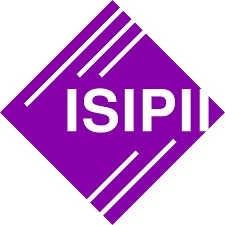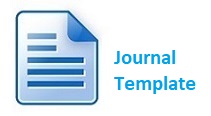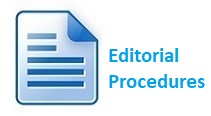Literasi media digital pada siswa SMPN 1 Sumber Kabupaten Cirebon
Abstract
Students at SMP Negeri 1 Sumber possess digital media literacy skills. However, their knowledge and skills are limited to primary computer and internet fundamentals. This study aims to understand digital media literacy based on students' individual competencies at SMPN 1 Sumber in Cirebon District. The research employs a quantitative approach through a descriptive survey method. The results of this study indicate that the digital media literacy level of SMP Negeri 1 Sumber students is 85%. This percentage consists of three abilities: technical ability (81%), cognitive ability (88%), and communication ability (67%). Among these percentages, the lowest score is observed in the student's communication ability. This is because students lack the knowledge and skills related to content creation, whether informative or entertainment-based. However, the proportion for the other two indicators is high because students have knowledge and skills regarding media and its regulations. In conclusion, the digital media literacy of students at SMP Negeri 1 Sumber is high, suggesting they have a good grasp of digital media literacy.
Keywords
Full Text:
PDFReferences
Anwar Rizal, E., & Saepudin, E., R. K. (2015). Kemampuan literasi informasi siswa tentang apotek hidup berbasis individual competence framework (Studi terhadap Siswa SMA di Kota Bandung). Jurnal Kajian Informasi & Perpustakaan, 3(1), 9–32. http://jurnal.unpad.ac.id/jkip/article/view/9486/5418
Ariawan, V. A. N., & Pratiwi, I. M. (2020). Digital literacy abilities of students in distance learning. 4th International Conference on Language, Literature, Culture, and Education (ICOLLITE 2020), 592–598. https://doi.org/10.2991/ASSEHR.K.201215.092
Arikunto, S. (2014). Prosedur penelitian-suatu pendekatan praktik. Jakarta: Rhineka Cipta.
Ding, M. (2020). Influence of new media technology on the reading habits of contemporary college students. Journal of Physics: Conference Series, 1533(4), 042087. https://doi.org/10.1088/1742-6596/1533/4/042087
Dridi, T. (2023). Tunisian high school students and digital media literacy: A quantitative study. Journal of Education, 203(1), 196–210. https://doi.org/10.1177/002205742110259
Indrawan, R., & Yaniawati, R. P. (2016). Metodologi penelitian: Kuantitatif, kualitatif dan campuran untuk manajemen, pembangunan, dan pendidikan (N. F. Atif (ed.)). Bandung: Refika Aditama.
Insanu, T. M., Erwina, W., & Samson, C. M. S. (2022). Literasi media ibu rumah tangga di Panghegar Permai Rt 02/Rw 03 Kecamatan Panyileukan kota Bandung. Nautical: Jurnal Ilmiah Multidisiplin Indonesia, 1(8), 802–810.
Kurniawati, J., & Baroroh, S. (2016). Literasi media digital mahasiswa Universitas Muhammadiyah Bengkulu. Jurnal Komunikator, 8(2), 51–66. https://journal.umy.ac.id/index.php/jkm/article/view/2069
Martin, P. (2006). Google as teacher: Everything your students know they learned from searching Google. College & Research Libraries News, 67(2), 100–101. https://doi.org/10.5860/crln.67.2.7571
Novianti, D., & Fatonah, S. (2018). Literasi media digital di lingkungan ibu-ibu rumah tangga di Yogyakarta. Jurnal Ilmu Komunikasi, 16(1), 1. https://doi.org/10.31315/jik.v16i1.2678
Pratama, F. R., Komariah, N., & Rodiah, S. (2023). Hubungan antara kemampuan literasi digital dengan pencegahan berita hoaks di kalangan mahasiswa. Informatio: Journal of Library and Information Science, 2(3), 165. https://doi.org/10.24198/inf.v2i3.43792
Pratiwi, N., & Pritanova, N. (2017). Pengaruh literasi digital terhadap psikologis anak dan remaja. Semantik, 6(1), 11–24.
Sandberg, R., Giebl, S., Mena, S., Bjork, E. L., & Bjork, R. A. (2020). Google as teacher: Constructive search engine use when learning to code. Proceedings of the 2020 ACM Conference on International Computing Education Research, 315. https://doi.org/10.1145/3372782.3408114
Sugiyono. (2018). Metodologi penelitian kuantitatif, kualitatif dan r & d (Edisi 10). Bandung: Alfabeta.
UNESCO. (2013). Global media and information literacy assessment framework: Country readiness and competencies. https://unesdoc.unesco.org/ark:/48223/pf0000224655
Waliulu, Y. S. (2022). Pengaruh individual competence framework terhadap tingkat literasi media pada kalangan pelajar SMA Negeri 2 Ambon. Global Communication For All, 1(1), 38–44.
Xu, R., Wang, C., Hsu, Y., & Wang, X. (2022). Research on the influence of DNN-based cross-media data analysis on college students’ new media literacy. Computational Intelligence and Neuroscience, 2022, 1–9. https://doi.org/10.1155/2022/9224834
DOI: https://doi.org/10.24198/inf.v3i3.47254
Refbacks
- There are currently no refbacks.
Copyright (c) 2023 Informatio: Journal of Library and Information Science

This work is licensed under a Creative Commons Attribution-ShareAlike 4.0 International License.
Informatio Indexed by:
Editorial Office :
Library and Information Science Study Program, Building 3 Floor 2, Faculty of Communication Science, Universitas Padjadjaran
Jl. Raya Bandung Sumedang Km. 21 Jatinangor, Sumedang 45363
Principal Contact :
Phone : 08122184219
Email : rully.khairul@unpad.ac.id

 ,
,




2.png)


